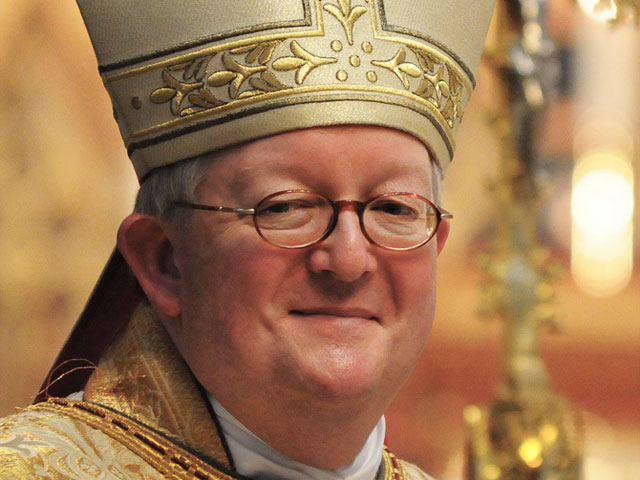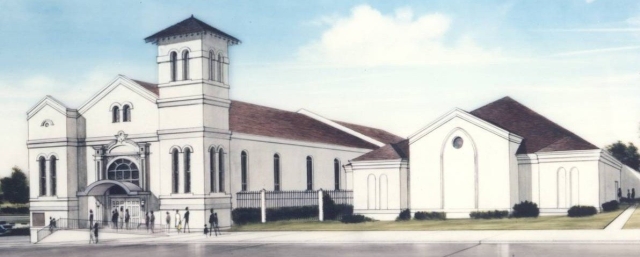Bishop: “I’m afraid you’ve got a bad egg, Mr Jones”
Curate: “Oh, no, my Lord, I assure you that parts of it are excellent!”
“True Humility” by George du Maurier, in Punch, 1895.
There is much to praise in the Los Angeles Times article “Uganda priest ostracized for publicizing sexual abuse”. The May 4 article addresses the question of sexual misconduct by Roman Catholic clergy in Africa – – child abuse and violations of the vow of celibacy. And it does so through the voice of Fr Anthony Musaala, an Ugandan priest suspended in March by his Archbishop for having brought the church into disrepute for exposing these problems.
I also like the article because it “gets Africa”. It understands the culture of shame that often manifests itself as cover up and denial, and makes reporting about the African scene so difficult. But there is also curate’s egg quality to the piece. Parts of it are quite good yet there is a bit that is off.
It is a mistake to conflate the sexual abuse of children scandal with the question of clerical celibacy. In this case while the African church is loathe to talk about child abuse it is not correct to say that they are silent on the question of celibacy. The article would also have been helped by addressing the question “why” — Why the homosexual abuse of young boys prompts such a visceral reaction by the church in Uganda.
The article begins:
He is a celebrity across eastern and central Africa, a gospel music star known to many as the “Dancing Priest.” But for years he also was a keeper of painful secrets — his own and many others’. In going public, Anthony Musaala has forced the Roman Catholic Church in Uganda to confront a problem it had insisted didn’t exist. And he may stir a debate far beyond Africa’s most Catholic of countries.
The Ugandan priest has been suspended indefinitely by the archbishop of Kampala for exposing what he calls an open secret: Sex abuse in the Catholic Church is a problem in Africa as well as in Western Europe and North America. The African Catholic Church is fast-growing, pious and traditional. As the church elsewhere forks out billions of dollars to compensate the child sex abuse victims of priests, few African Catholics have questioned the assumption, voiced recently by Ghanaian Cardinal Peter Turkson that the African church is purer than its counterpart in the West, which is regarded as secular and permissive.
It’s not more pure, says Musaala. He says he has the evidence to prove it. “The Vatican turns a blind eye because it doesn’t want to be embarrassed about this blooming church. But I think it’s time we had the truth,” Musaala says.
The article reports that in March Fr Musaala wrote Archbishop Cyprian Lwanga “about priests who fathered children, kept secret wives or abused girls or boys, and called for a debate on marriage for priests” and stated that as a young boy he too had been abused. It said:
The letter was leaked to the news media. And in response, Lwanga suspended Musaala, saying his statements stirred up contempt for the Catholic Church and damaged the morale of believers. Later in the month, Lwanga acknowledged that abuses had taken place, apologized to victims and set up an internal inquiry. But he did not backtrack on Musaala’s unpaid suspension.
This account conflicts with other press reports. All agree that Fr Musaala was suspended, but the Ugandan press reported this was an open letter given to them and to the Archbishop. It would also have helped this story if the LA Times had unpacked the religious context. The Catholic and Anglican churches in Uganda, who account for 80% of the population, celebrate the feast of the Martyrs of Uganda. As an aside if you should ever want evidence as to why you should not trust Wikipedia compare the politically correct and false version on Wikipedia with the story told on the website of the shrine to the martyrs.
The first martyr to die was King’s major domo and leader of all Christians, Joseph Mukasa Balikuddembe, on 15th November 1885. He was killed because he had pleaded to King Mwanga to abandon the vice of homosexuality and not to kill Bishop Hannington, an Anglican missionary who had entered Buganda from Busoga (the backdoor of Buganda kingdom). From that time he became angry with all Christians as they all refused to give in to his sinful demands and were persuading all other pages to do the same. On 25th May, 1886, King Mwanga ordered for a number of Christians to be brought before him and he passed on them the death penalty. 20 of the 22 martyrs were killed between 26th May 1886 and 3rd June 1886.
The Ugandan martyrs died because they refused to countenance the king’s homosexual advances because their Christian faith taught them that sodomy was a sin. Omitting this historical context — one of the defining sagas of the Catholic Church in Uganda leave the story untold.
Would the story have been helped by mention of the Ugandan Martyrs? Or by mention of Fr Musaala’s on-going fight with the archbishop in the press? Does it make a difference to the denouement of the piece if the letter was leaked to the press or given to the press by Fr Musaala?
The linkage between abuse and clerical celibacy was also unfortunate, as the Church has been far from silent on this point. The 2009 Special Assembly of the Synod of Bishops of Africa convened by Pope Benedict discussed the question and problems of priestly celibacy for the African church. In the neighboring Central African Republic an archbishop was suspended for having broken his vows of celibacy, while a number of clergy in Kenya have quit the church over mandatory celibacy. Silence over celibacy and its challenges for the clergy is not a problem — silence over abuse is.











